Astrill VPN
Astrill is a Seychelles-based provider with more than a decade of experience in the VPN business.
The service network is smaller than most, with 300+ servers covering 107 cities across 57 countries. That's a little down on our last review, where Astrill offered 113 locations in 64 countries. There are plus points, though: Astrill uses dedicated servers rather than underpowered VPS, supports P2P in some locations, and offers Onion over VPN support for extra privacy.
Wide platform coverage is another plus, with apps for Windows, Mac, iOS, Android, Linux and routers.
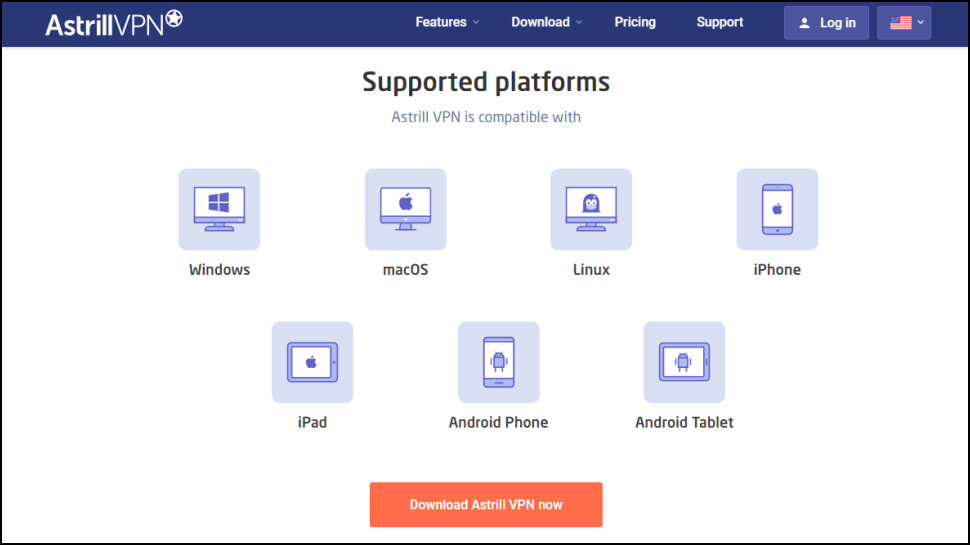
These are very configurable (more on that later), and are more powerful than you might expect. Protocol support isn't restricted to OpenVPN, for instance: there's also WireGuard, and a connectionless OpenWeb to protect browser traffic, and the company's own StealthVPN option to bypass VPN blocking.
- Want to try Astrill? Check out the website here
Astrill has many more custom and low-level technical features. Smart Mode helps Chinese users avoid VPN detection and access blocked sites. Port forwarding support can speed up torrenting and allow secure access to your home network. Multi-hop VPN directs your traffic through an extra VPN location, making it even more difficult for snoopers to track you, and VPN sharing allows other devices on your network to use your Astrill connection.
The Astrill website also boasts that the service allows you to 'connect unlimited devices', but that didn't mean quite what we thought. You can set up Astrill VPN on as many devices as you like, but the service only supports connecting five of them simultaneously, much like almost everybody else.
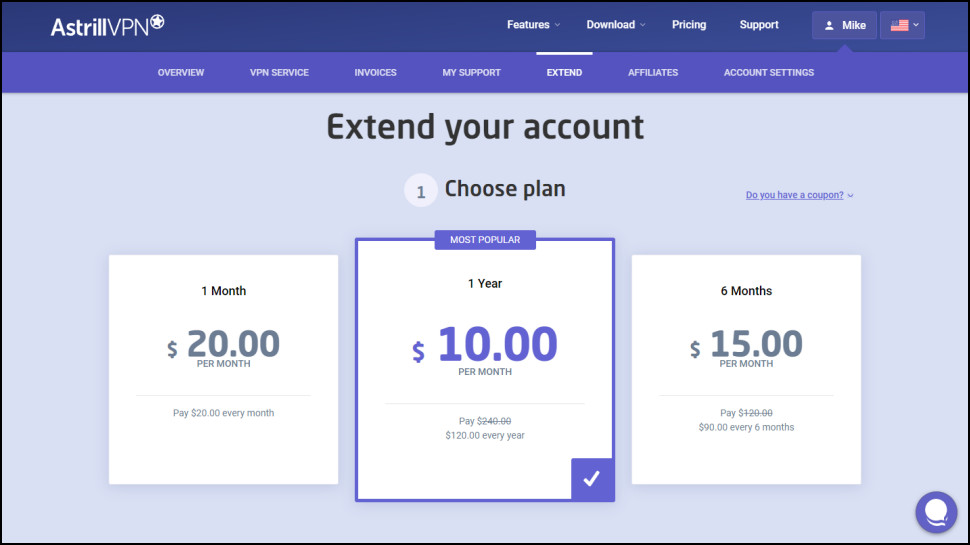
Astrill VPN pricing
Astrill is jaw-droppingly expensive at $20 a month, dropping to $15 a month on the six-month plan, or $10 if you take the annual option.
You'd expect the best possible service for that price, right? Think again. Astrill has an optional VIP Addon which delivers 'optimized speed and reduced latency for clients in Asia and gamers', 'prioritized traffic on all servers', and 'multi-hop VPN' (pass your traffic through two VPN servers). That's an extra $10 a month to get Astrill's top speeds, regardless of the length of your subscription, so adding it to the annual plan bumps up the price to $20 a month.
Putting that into perspective, pay Astrill $120 (or $240 with the VIP Addon) and it'll cover you for a year; pay Ivacy $80, you're covered for five years, and there's 2TB of encrypted cloud storage thrown in for free.
Astrill does have a bonus in a limited free Android plan. You can only use it with one device per account and speeds are limited, but it might be worth a try.
There's another plus in Astrill's lengthy list of payment options, including card, PayPal, Bitcoin, AliPay, WebMoney, Union Pay and Web Money. And if you're not confident Astrill is going to be worth the money – and let's be realistic, who would be? – you're able to try out the service for 7 days, no payment details required. (Beware, though, there's no refund or money-back guarantee after that.)
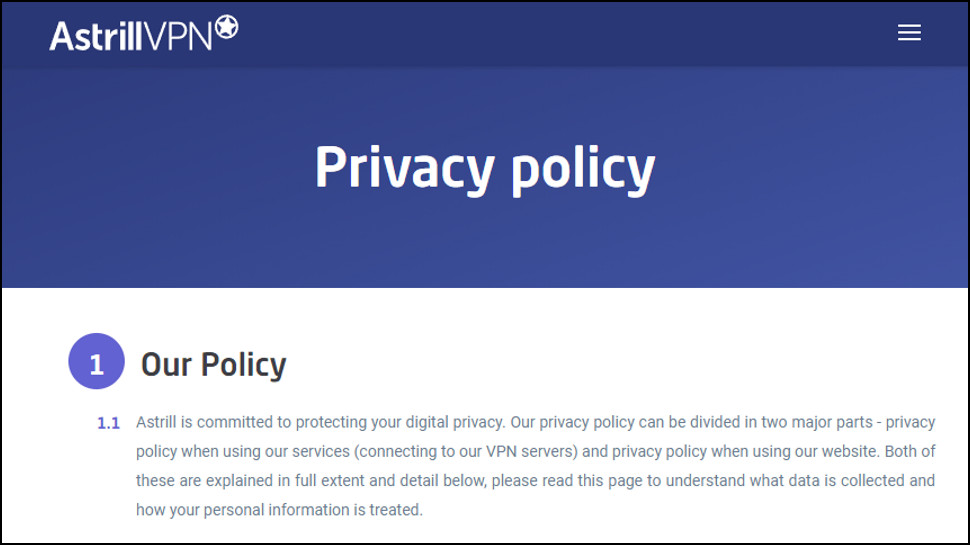
Privacy
VPN privacy policies are often poorly written and provide little useful information, but Astrill does a much better job.
The document is sensibly laid out. Clear headings make it easy to find the areas you need – cookie use, information collected, how it's shared – and it's impressively straightforward and jargon-free.
The 'Strict no-logs policy' section doesn't just include a bland, generic 'we don't keep any logs' statement, like many competitors. Instead, Astrill takes the time to describe its procedures and what the firm really does.
For instance, Astrill says: "Our system keeps track of active sessions – connection time, IP address, device type and Astrill VPN application version during the duration of your VPN session. Once you disconnect from VPN this information is removed permanently from our system."
Astrill holds some information to manage current connections, but doesn't keep it long-term.
The document explains that Astrill keeps the "last 20 connection records which include: connection time, connection duration, country, device type and Astrill client application version number" in order to "identify potential issues with VPN connection[s] and provide adequate support."
While that is a persistent log, the company explains that it doesn't keep IP addresses, so won't be able to tie these sessions to any internet action.
Good news on logging, then, but there is another issue here. The policy explains that when you sign up, the company doesn't just collect your email and name, but "depending on your payment method, we may require your phone number and address."
We confirmed this during the review, when the website requested a mobile phone number in order to send us a verification code.
Astrill does an above-average job with its privacy policy, then, giving us plenty of detail and saying all the right things. But asking for extra personal details doesn't seem to fit with this. And as the company hasn't put itself through a privacy or security audit, there's no way to verify what it's really doing. You're left to take Astrill's promises on trust.
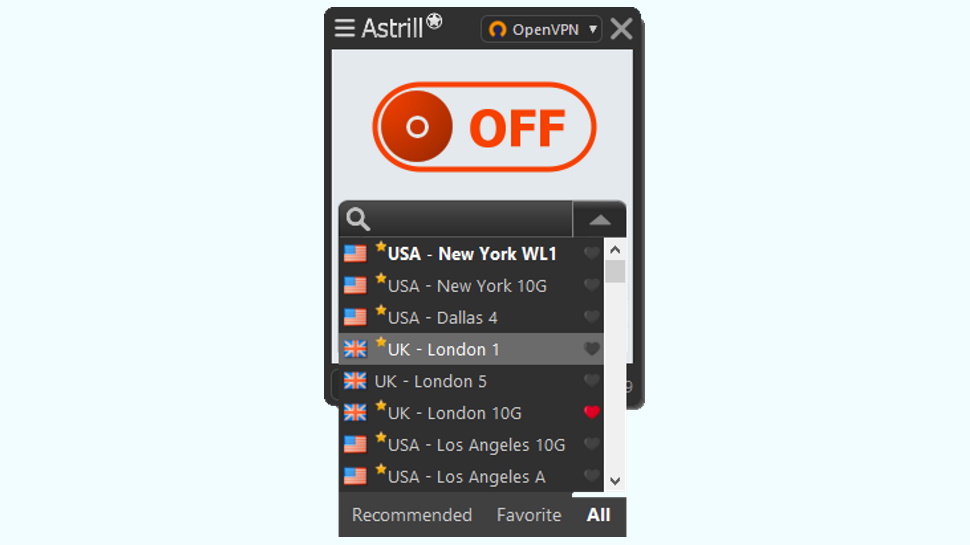
Windows
As we mentioned above, signing up for Astrill takes a little more work than usual. Sign up for the trial and you're asked to verify your phone number by entering a PIN sent via SMS; we paid by PayPal and were asked to enter our real-world address, too.
Life gets easier post-payment, fortunately. A web console pointed us to Astrill's downloads, we grabbed the Windows installer, and it set itself up within seconds.
The Windows client has a tiny interface, which initially seems little more than an On/Off button, the name of the current location, and a scrolling chart of recent network activity. But there's more to the app than you might think.
A simple location picker displays a list of servers, with a search box (type 'LON' to list the London servers), a Recommended tab listing the servers Astrill thinks you're most likely to need, and a second tab to store your favorites. This looked good, but didn't work well in real-world use.
We were testing from the UK, so we expected clicking 'Recommended' to give us UK, US and other nearby locations. Instead, it displayed Seattle, New Zealand, Japan and Hong Kong.
Switching to the 'All' list gave us access to the UK servers, but the location names aren't sorted alphabetically (or by any other recognizable order), so you may have to scroll to find what you need.
Even when you find the right country, Astrill's odd server names might leave you confused. Scroll to the UK, for instance, and the list begins '*London 10G', '*London O1', 'London GT1' and '*London 1.' Which is best? We'd hazard a guess most users will have no idea, so are likely to just choose one at random.
There are explanations, if you go looking, but they're not always obvious. The asterisk turns out to mean the server supports P2P, for instance. Fine when you know, but like much of Astrill's apps, it's not something you're likely to guess. You'll need to spend some time learning the app and its nuances to get the best out of the software.
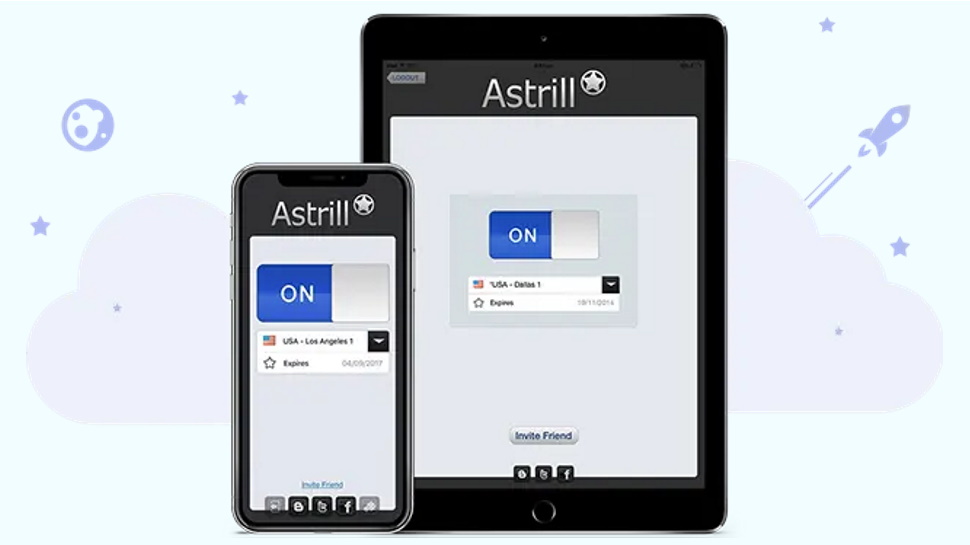
Mobile apps
Astrill's mobile apps are far more basic than its Windows offering, but then they're a whole lot easier to use, too.
The iOS version has just a location list, a TCP/UDP protocol choice (that's OpenWeb and WireGuard) and a big On/Off button. That looks distinctly underpowered compared to the competition, although the app does have one welcome feature that's not included in the desktop software: a Recent tab on the location list makes it easier to find and reconnect to servers.
Astrill's Android app has a little more functionality – OpenWeb, StealthVPN and WireGuard support, for instance. An Application Filter is a split tunneling system which enables defining which apps use the VPN, and which use your regular connection. There are one or two protocol tweaks (UDP/TCP and port choices), and a Show Logs option to help troubleshoot connection issues.
It's a little better than the iOS app, but only a little, and there are downsides, too. Not only is the Location picker missing the iOS 'Recent' tab, it doesn't have a Favorites system, either; yet another annoying inconsistency between platforms.
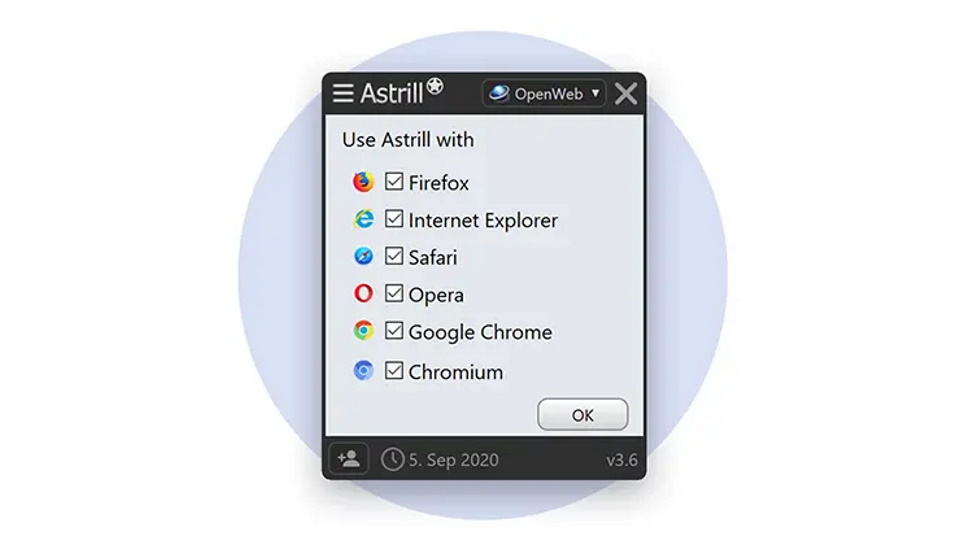
Protocols
Astrill's protocol support gets off to a good start with WireGuard and OpenVPN. The latter defaults to AES-128-CBC, but that'll still defeat any attacker, and you can change it to AES-192 or AES-256 if you prefer. You can even disable encryption entirely, perhaps useful with something like streaming, where performance is a top priority and there are no security issues.
The company's own StealthVPN offers 'an additional encryption layer on top of OpenVPN', Astrill says, making it 'even more secure and hard to identify and block by firewalls.' It may help you get online in China and other VPN-unfriendly countries, although we didn't check this during this review.
OpenWeb 'is invented by Astrill, uses AES military grade encryption and offers much faster surfing and streaming speeds comparing to other VPN protocols', according to the firm's help pages.
By default, OpenWeb only tunnels traffic from Astrill's idea of the 'popular web browsers': 'Firefox, Internet Explorer, Opera, Safari, Google Chrome, Chromium.' Internet Explorer instead of Edge? Fortunately, you can add other apps as required.
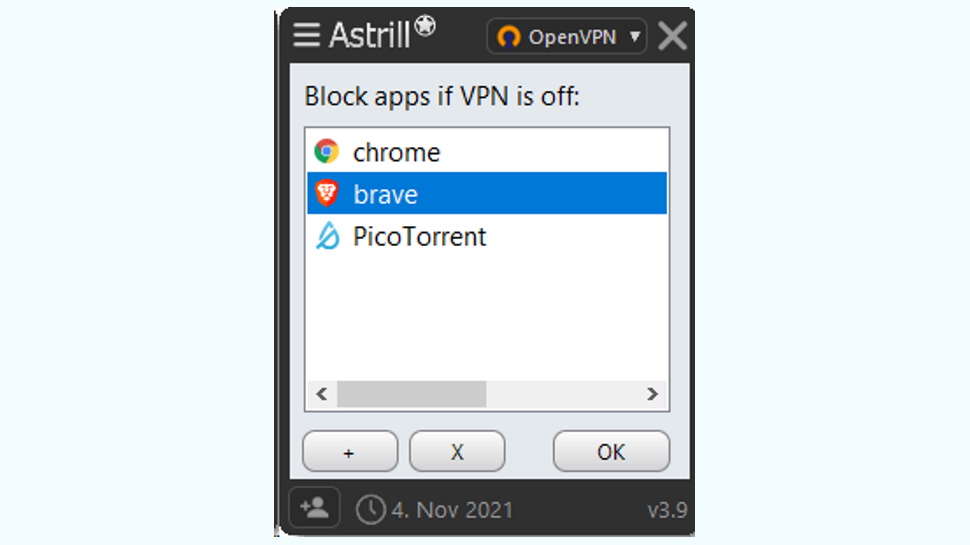
Kill switch
Astrill's Windows app has two kill switches, each designed to prevent you sending unprotected traffic if the VPN drops.
A system-wide option blocks your internet connection, which is secure and easy to set up, but is also a nuisance if the VPN drops regularly.
An app-level kill switch called App Guard is a little smarter. Specify the applications you'd like to protect – Chrome and Outlook, say – and if the VPN goes down, Astrill blocks traffic for those apps only. Everything else works as normal. That's less secure as you're assuming none of your other traffic is important, but it's also more convenient if the switch kicks in.
We tested both switches, trying various scenarios to see how reliable they were. The results were, well, mixed.
The system-wide kill switch protected us some of the time. When we killed its OpenVPN process, for instance, our internet was blocked and the app automatically reconnected. Simple.
When we moved to more extreme tests, though, the cracks began to appear. We forcibly closed the Astrill app while using WireGuard, the VPN dropped, but the kill switch didn't kick in. And when we tried the same with OpenVPN, the VPN stayed up, but the connection dropped when the app restarted, again without the kill switch activating.
Astrill's app doesn't raise notifications when it connects or disconnects, either. That's another concern, as if the VPN does drop for some reason, you won't realize unless you're looking at the app's dashboard.
These are tougher tests than are likely to occur in real life, and we think Astrill's kill switches will protect you most of the time. But they do have weaknesses, and don't match the best of the competition.
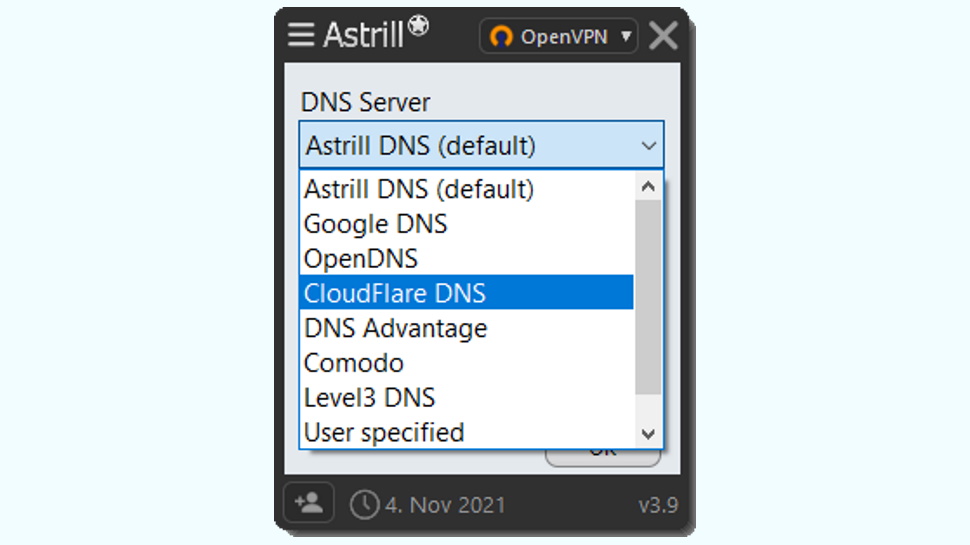
Settings
Astrill's app settings cover just about every tweak and option we'd expect, and a great deal that we really didn't.
The client doesn't just let you choose OpenVPN UDP or TCP settings, for instance. You're also able to define the encryption method (AES 128, 192, 256), the port, even the MTU setting. And you can configure the port and MTU values for Astrill's other protocols, too.
Capable split tunneling features allow you to decide which applications and sites will use the VPN, and which will use your regular connection. You could set up the system to protect your torrent client and the Netflix and BBC iPlayer sites, for instance, but leave other traffic connecting as usual.
Astrill's Privacy settings don't stop with its kill switch functionality. It also has DNS, IPv6 and WebRTC leak protection, and even bonus privacy options to delete regular and Flash cookies.
By default, Astrill connections use the company's own DNS servers. The client doesn't just allow you to manually specify an alternative, though – you can also choose popular services from a list (Google, OpenDNS, Cloudflare, Comodo, Level3, more), or decide not to change DNS at all.
There's plenty more, but we'll stop at Astrill's user interface options. By default, the interface stays on top of other applications, for instance. But if you don't like that, you can turn this off with a click, then define a hotkey to launch the app on demand.
Overall, Astrill VPN's Windows app offers more features and configuration options than just about anything else we've ever seen, and experienced users could spend a very long time happily exploring what's on offer here. But the sheer volume of low-level settings (and the technical language used just about everywhere) may intimidate less technical types.
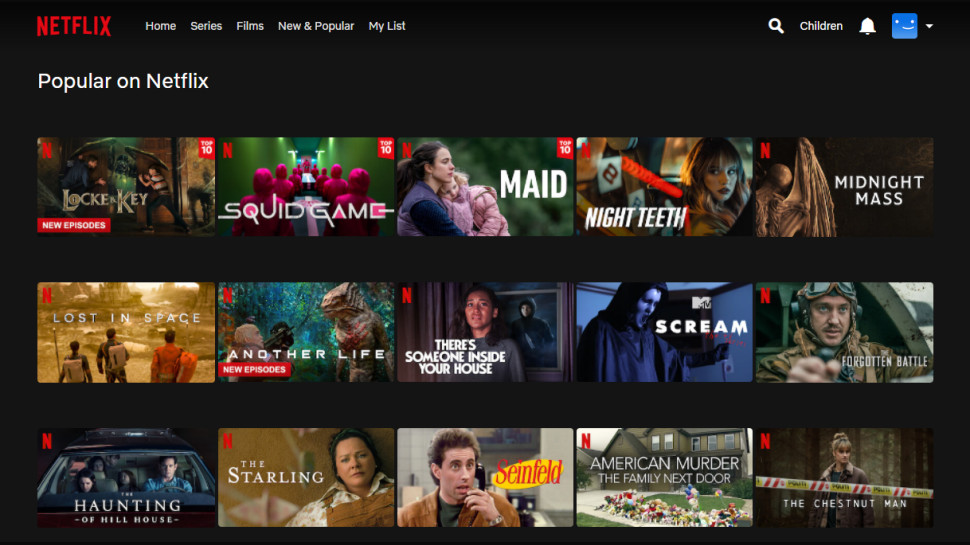
Netflix and streaming
Astrill's apps don't have specialist locations for unblocking Netflix, Amazon, Disney Plus or any other streaming platforms. That can make it more challenging to get into a particular site, as you might have to try several locations before you succeed (or give up).
That wasn't an issue with US Netflix, though, as Astrill successfully unblocked it with all three of our test locations.
Unfortunately, Astrill didn't have any success with other Netflix libraries, and we had no luck with BBC iPlayer, Amazon Prime or Disney Plus, either.
If you're going to unblock only one platform, US Netflix is a great choice, especially as it defeats so many VPNs these days. Still, considering the price you're paying, Astrill's unblocking performance is a little disappointing.
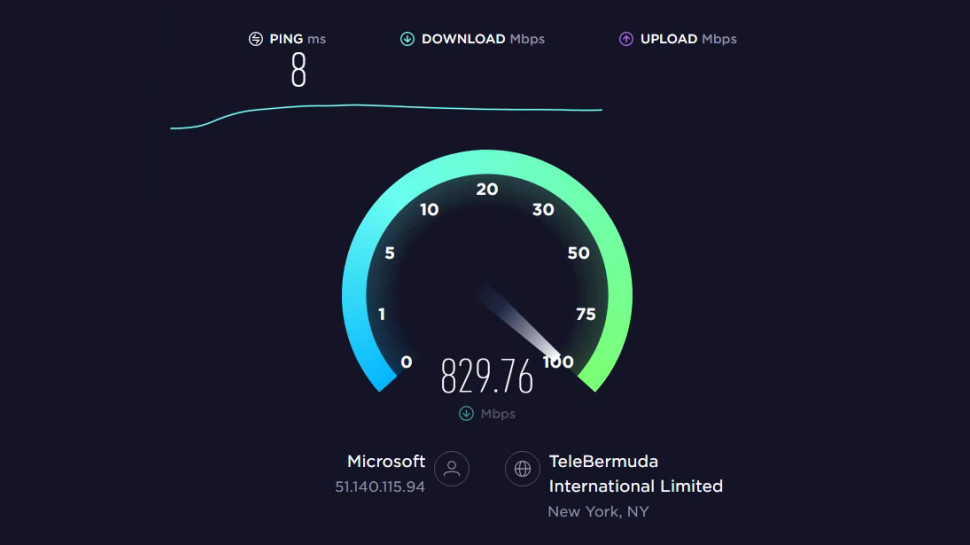
Performance
Our speed tests got off to a positive start, with OpenVPN performance averaging 200-300Mbps from our fastest local US server on a 1Gbps test connection. That's a solid performance, and in the same area as big names like ExpressVPN (250-300Mbps) and Private Internet Access (190-300Mbps).
Astrill's WireGuard is relatively disappointing, though, at 390Mbps. Yes, it's faster, but other providers go much further. CyberGhost, IPVanish and NordVPN reached 750Mbps and more in recent testing.
Astrill VPN review: Final verdict
Astrill VPN's desktop apps are stuffed with expert-level and hugely configurable features, and any VPN with the tech to get you connected in China deserves a lot of credit. But there are issues, too, and realistically you can get easier to use and faster VPNs with much better unblocking results for a fraction of the price.
- We've also highlighted the best VPN
0 comments:
Post a Comment